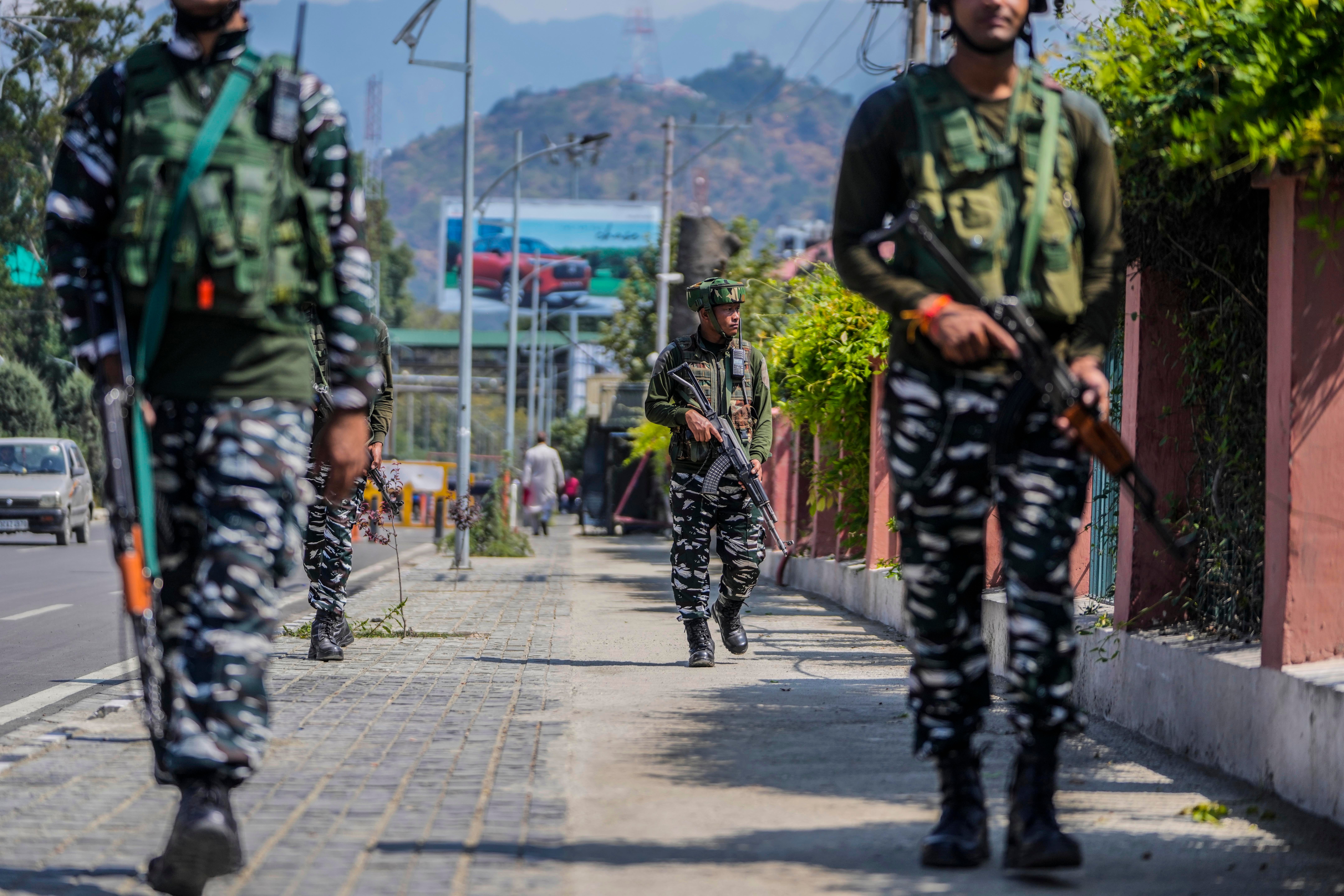Authorities in Indian-controlled Kashmir free a key Muslim cleric after years of house arrest
India has freed a key Muslim cleric after four years of house arrest and allowed him to lead Friday prayers at a mosque in Srinagar, the main city of Indian-controlled Kashmir

Your support helps us to tell the story
From reproductive rights to climate change to Big Tech, The Independent is on the ground when the story is developing. Whether it's investigating the financials of Elon Musk's pro-Trump PAC or producing our latest documentary, 'The A Word', which shines a light on the American women fighting for reproductive rights, we know how important it is to parse out the facts from the messaging.
At such a critical moment in US history, we need reporters on the ground. Your donation allows us to keep sending journalists to speak to both sides of the story.
The Independent is trusted by Americans across the entire political spectrum. And unlike many other quality news outlets, we choose not to lock Americans out of our reporting and analysis with paywalls. We believe quality journalism should be available to everyone, paid for by those who can afford it.
Your support makes all the difference.Indian authorities released a key Muslim cleric after four years of house arrest and allowed him to lead Friday prayers in Srinagar, the main city of Indian-controlled Kashmir, according to mosque authorities.
Mirwaiz Umar Farooq has been spearheading protests against Indian rule in the disputed region. He was detained ahead of India revoking Kashmir's special status in 2019 and throwing the Himalayan territory into political uncertainty.
The 2019 decision stripped the region of statehood, its separate constitution and inherited protections on land and jobs.
“Senior police officials visited the residence of Mirwaiz on Thursday to inform him that the authorities have decided to release him from house detention and allow him to go to Jamia Masjid for Friday prayers,” the mosque management committee said in a statement.
Kashmiri separatist leaders, many of them either under house arrest or in police detention, have vowed to continue their struggle and refuse to participate in any dialogue. They want New Delhi to accept Kashmir as a disputed region, release political prisoners, revoke harsh emergency laws and announce a plan for Kashmir's demilitarization.
Kashmir is divided between India and Pakistan since British colonialists granted them independence in 1947 and both claim the region in its entirety. They have fought two wars over its control.